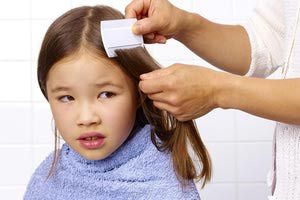It is easy for children to get head lice and there’s definitely no doubt about that. Due to many different reasons, children get infested with these in one way or another. Even though such cases are somewhat normal, chances are that children having this will get ashamed of his or her situation. If you’re a parent and your child suffers from this one, you must take necessary action in order to treat the head lice infestation as soon as possible. Since head lice are known to multiply easily, chances are that others will definitely get it, including you.
For Parents: Easy Tips to Avoid and Prevent Head Lice in Children
Avoidance is the Most Effective Way
As of now, there are still no fail-safe remedies in order to treat head lice infestations despite the efforts of pediatricians and parents alike. Because of this, teaching your child ways to avoid head lice remains the most effective way in order for him or her not to have it. The good thing is, head lice doesn’t have the ability to jump or fly at will so preventing such infestation is not that difficult.
These are the simple ways to prevent head lice spreading from one person to another:
- Teach children to avoid sharing personal their belongings. Except from food, parents must teach their children NOT to share personal belongings like combs, headbands, towels, hats, pillows and the like to others, including their siblings especially when news of head lice infestation hits your location. This is to make sure that the head lice won’t have the opportunity to get transferred from one healthy head to another.
- Teach children to hang their clothes in an individual hook or separate area. Instead of letting them throw their coats, raincoats, etc. along with their classmates’ apparel, teach your children to hang his or her clothes in a separate area to avoid head lice transfer.
- Check children for signs of head lice infestation once a week. As an additional safety measure, parents must check their children’s heads at least once a week for presence of live nits or head lice. Don’t forget to check their headphones, hats and other head gear as well.
- Check your child whenever a problem comes up. If you start seeing your child frequently scratching his or her head or neck for the past few days, make sure that you check him or her out for signs of head lice. If you’re certain that your child has one, take him or her to a pediatrician for proper examination and treatment.
